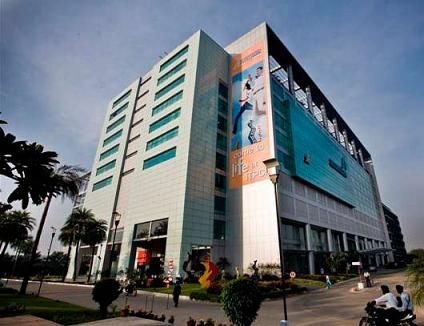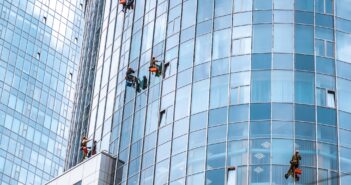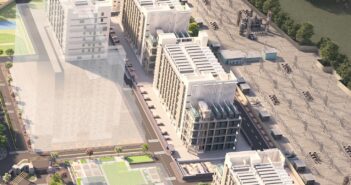
Mumbai commercial property market – mid-2011 update
The Mumbai commercial property market has displayed resilience in the recent past.

The Mumbai commercial property market has displayed resilience in the recent past.

Ascendas India Development Trust (AIDT), the India-focused real estate fund floated by Singapore-based office space developer, is looking to raise close to $350 million.

As the education sector evolves, factors such as technology permeation, revamped building designs, and focus on health & safety are likely to define education real estate. Besides, modern educational building design must prioritise flexibility so that spaces can be reconfigured to adapt to various teaching methods and activities, developing a dynamic learning environment. To address this and move away from traditional classroom setups, educational buildings now include collaborative spaces to encourage teamwork and group learning. Moreover, sustainable, and eco-friendly design elements, such as energy-efficient systems and natural lighting, are becoming increasingly common to reduce the environmental impact of educational buildings.

The surge in demand for luxury housing has been primarily attributable to a growing preference among affluent buyers for enhanced amenities and more spacious living areas that complement their multifaceted lifestyles. Moreover, the increasing aspirational class has significantly contributed to the increased demand for luxury properties. Furthermore, the rise in NRI and astute domestic investors in the Indian real estate market has considerably fueled the heightened demand for luxury residences.

Emaar India the Indian business entity of brand Emaar, famous for developing Burj Khalifa, is now entering the Mumbai market with an offering in Alibag. The company will be introducing a coveted villa – only destination for the who’s who of Mumbai- the financial capital of India. It will soon be launching its first ultra-luxury villa project, The Casa Venero in Alibag, Maharashtra. The company has set up their sales lounge in the Oberoi.

During the first nine months of 2024, large deals (>200,000 sq ft) accounted for about 40% of the overall demand. Although a vast majority of these larger deals came from 3PL players, Engineering and FMCG segments also saw considerable large-sized deals. At the city level, industrial and warehousing space uptake in Delhi NCR was also driven by large sized deals, a marked deviation from 2023, wherein leasing activity was dominated by small sized deals. Almost 50% of the deals in the first nine months of 2024 were large sized in Delhi NCR.

Office leasing is likely to record a historic high of ~70 mn. sq. ft in CY 2024 across top 9 cities in India as per current estimates, says ‘CBRE India Office Figures Q3 2024’. The last highest office leasing was recorded in CY 2019 at 66.6 mn. sq. ft. The office demand will be driven by both global and domestic occupiers, who are expected to continue expanding their operations and consolidating their facilities to strengthen their market presence. GCCs are poised to expand significantly in India, accounting for about 35-40% of the total office leasing.

Q3 2024 attracted USD 1.1 Bn inflows, 45% higher over Q3 2023. Office segment drove over half of the investments in Q3 2024, followed by residential with 33% share. Domestic investments accounted for 44% of the total investments during the quarter. Chennai & Mumbai cumulatively attracted 57% of the inflows in Q3 2024. Sustained confidence in Indian economy continued to drive institutional investments into the real estate sector, reaching USD 4.7 billion during the first three quarters of 2024, almost at par with the corresponding period in 2023. Following significant inflows in the first two quarters, Q3 2024 too registered healthy investment inflow of about USD 1.1 billion, reflecting a 45% YoY growth.

97% of employees and 98% of employers in India surveyed by Unispace say they are satisfied with their hybrid working arrangement. Employees in India are least likely to spend time at their desks while working from the office (50% vs. 64% globally). Subsidized travel (i.e. parking or public transportation), access to training and development programs, and free drinks, coffee and snacks rank as the top three reasons for Indian employees to spend more time in the office. Worldwide, employers’ confidence in their workplace’s capacity to foster innovation shows a downward trend.

The REIT has already developed 2 data centers for PDG, measuring ~0.63 million sq. ft. Upon completion, the Business Park will feature 5 cutting edge data center buildings and the total data center footprint within the Mindspace REIT portfolio will stand at ~1.65 million sq. ft. This landmark development spanning ~15 acres, will become a part of the larger 50-acre campus ecosystem of Mindspace Airoli West.
